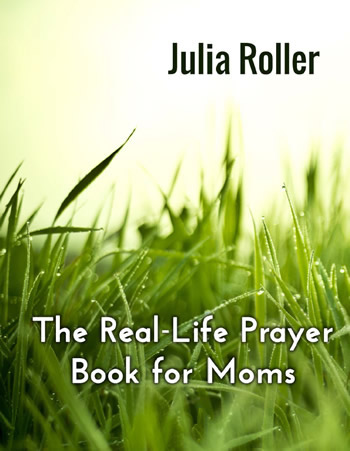It’s official: online-only school in the fall for all three of my children.
So we’ll be spending even more time together.
Yay?
We’ve had an awful lot of togetherness since this pandemic began. The house may never be clean again because someone is always right in the middle of it, making a mess. I cannot seem to keep up with the dishes produced by five people eating every meal at home. Life-work balance has never been trickier. I’ve been out of bandwidth for months now. Yet as much as we all struggle with very real concerns about our health, our jobs, and our kids’ education, every parent I’ve talked to has also mentioned how much they’ve enjoyed having extra time with their children. I know my family has had lots of fun together–beach days, movie nights, impromptu tea parties, Slip ‘n’ Sliding, training our quarantine puppy.
To try to keep some learning going over the summer, I encouraged (okay, forced) my 13-year-old to read Life Together, the classic book on Christian community by Dietrich Bonhoeffer. My son is quite the WWII buff, so I thought he’d be interested in Bonhoeffer’s incredible backstory of returning to Germany during the war to run an illegal seminary opposed to the Nazis and then his arrest and execution for participating in a plot to kill Hitler.
My son’s comment after reading the first chapter: It’s kind of like a sermon, Mom.
Well. . . yeah.
What I wanted him to read and reflect on are Bonhoeffer’s inspiring words about community–the way he holds up community as a great privilege for Christians. He writes, “The physical presence of other Christians is a source of incomparable joy and strength to the believer.” Rereading the book recently, I was struck by his assurance that we, embodied Christians, should never feel bad for longing to see other Christians in person. It was both a welcome and a troubling insight in this age of Zoom.
Our church has done a great job with creating online community–the online services are excellent, our Bible studies meet over Zoom, and the VBS featured a streaming program followed by a parade where we all met outside for a few minutes of singing, dancing, and shooting water guns. All of that has been wonderful, but it doesn’t quite feel like community in the same way we used to have it.
I miss community, I even long for it, and somehow in the middle of all that I manage to forget that I live with four other people.
It’s funny how we often ignore the family as a place of service, a place of spiritual formation, as Christian community. I think that’s often because it’s not easy to serve within our families. Our families bring out the best and also sometimes the worst in us. Particularly when my children were very small, I noticed they would save their very worst behavior for me. I understood that was because I was a safe place, but that understanding didn’t really make handling the behavior easier when it was occurring. Adults can be guilty of the same thing. I know I sometimes show my frustration or irritation or anger within my family in ways I would never show it to the outside world. For the most part I think it’s healthy to be able to display our emotions to those we love, but of course we have to be aware that our actions and words can hurt each other too. The power we wield over those within our immediate family is outsized and we should always remember that.
Yet spiritual formation happens during the hard stuff, when we make mistakes and ask forgiveness, when we forgive each other. Life together in Christian community was never supposed to be easy. It’s messy and hard at times, just like family life. But it’s those hard parts that make the whole enterprise so powerful and rewarding.
Bonhoeffer writes of those who “have the privilege of living a Christian life in the fellowship of their families.” I’m reminding myself of that “privilege” part these days. And of how my family can provide that remarkable role that is my favorite part of Bonhoeffer’s book, the way we need others and why. We need each other because of Jesus Christ, because the Christ in our heart is weaker than the Christ in our sister’s or brother’s heart. When our hearts are uncertain, the hearts of our brother or sister are sure.
I love this image of being sure for each other, the idea than when we are weak, a fellow Christian is strong for us. It is something I have seen and experienced many times, and I think it is at the very heart of Christian community. Sometimes we are the ones being strong, and sometimes someone is strong for us.
As parents, we expect to be the ones being strong for our children, but every parent knows that there are also times when our children are strong for us. When their faith and love inspires and encourages us and lifts us out of a dark mood.
My son’s favorite part of Life Together is the section about how we as Christians bear each other’s burdens. We carry each other and we also suffer each other’s sins and failings. This idea seems to me to come into sharp relief during these pandemic times, when sometimes it feels like too much togetherness, like the burden is too much to carry. That’s when I remember that I’m not carrying it by myself–that the Jesus in my husband and children carries it for me even as I do the same for them. And that is why family life is, yes, a privilege.




Lynn Greer
Loved this, Julia! I miss my church family very much, but am grateful that I am still able to be with my children and grandchildren during this time.